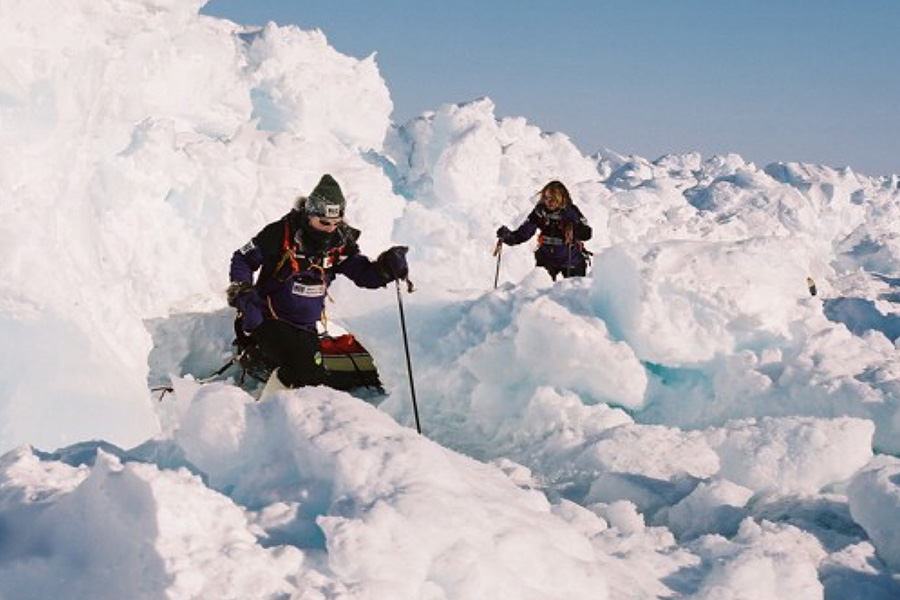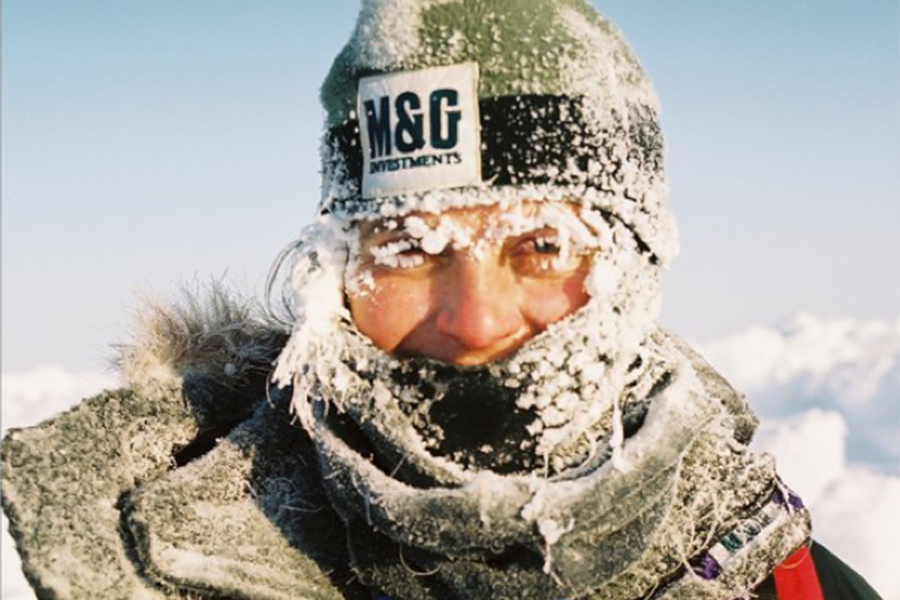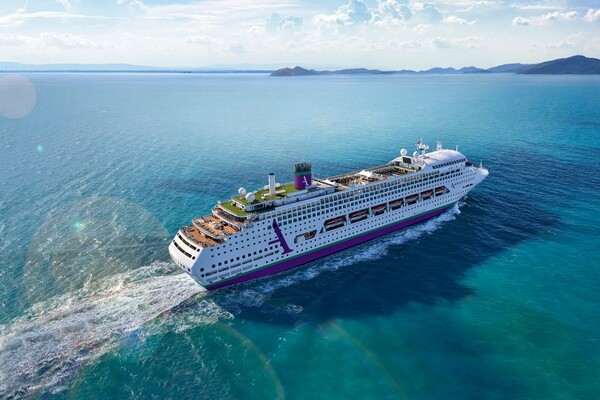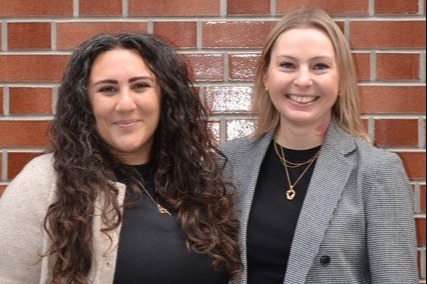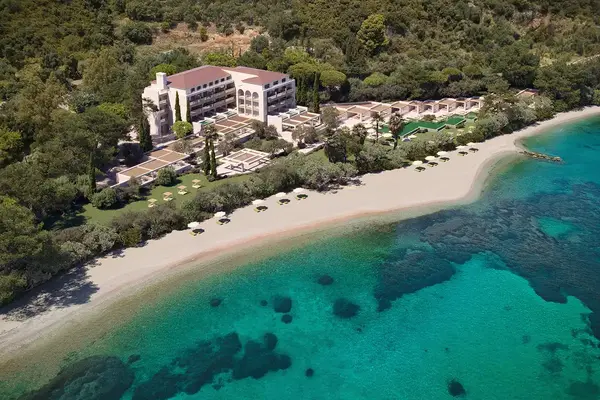Meet the polar trailblazer joining Cunard in Alaska
Caroline Hamilton was part of the first all-women team to ski to both the North and South Poles, and guests will have a taste of her adventures when she boards Queen Elizabeth on 30 August as part of the line’s Insight Speaker programme
How did you become a polar explorer?
After graduating from university, I joined a small film financing company and while I was there, I met a polar explorer. Well, a friend of mine was dating him… And I just thought, if he can do it, so can I. He helped put together the first women’s relay expedition to the North Pole, in 1997, which I led.
How was that first expedition to the North Pole?
We held selection weekends on Dartmoor. Women didn’t do anything like these expeditions in the nineties. We knew people were thinking “they won’t do it, they haven’t got big hairy beards”. That was definitely part of the appeal – pushing those boundaries. We had five teams of four women, and I found the isolation and self-sufficiency utterly compelling. It was a very extreme form of backpacking, in an overwhelmingly beautiful environment, which was unlike anything I’d seen before.
Then you switched to the South Pole...
Five of us from that relay expedition got together and said “we want to do this again”. We’d caught the bug. We want to do it ourselves, without guides, and go all the way. I’d been very involved in the organisation of the first one, which was helpful. Antarctica was wonderful. It was very different to the Arctic, where you are travelling on frozen sea and frequently come across patches of open water. You smell the open water long before you see it. In Antarctica you are trekking over glaciers, 9,000ft thick. We walked for 60 days in extreme cold. The wind cuts straight through you. There were days when the conditions were pretty hellish, but still I enjoyed it.
... and returned to the North Pole
For three out of the five of us who went to Antarctica, the north felt like unfinished business. We needed to go all the way to the North Pole and do it for ourselves. We set out to do it unsupported, without a plane to resupply us, which few adventurers manage to do. And neither did we… we endured the most appalling conditions. If this had been that first relay expedition, we wouldn’t have got anywhere. This third expedition pulled on all the experience we’d had previously.
Why were conditions so bad there?
Spring temperatures average -35C but we experienced between -40C and -45C. When the cold is that extreme, it slows down your thought processes, it physically slows you down – and we had heavy sledges packed with food supplies and fuel. The tundra freezes over winter but in spring, it breaks up, and pressure ridges form. It’s like an assault course with 20-30ft high boulders of ice. At the beginning we covered no more than a mile a day and we had 500 to go! Five weeks in, we survived a terrible storm. We were unable to get the tent up, so we wrapped ourselves in the fabric, and lay on top of each other, to ride out the storm. The snow buried us alive, and we lay there for 50 hours.
How did that freak storm affect you?
My team mate Pom Oliver suffered bad frostbite, which refused to heal, and she struggled with the long days trekking. When we were forced to call for a resupply, a medic came out and looked at Pom’s toes. It was a terrible moment when we knew she was not going to be able to continue on the expedition. For me and Ann Daniels, it became a race against time before the ice melt scuppered our chances. We fell through the ice so many times, swimming in sub-zero seawater. In those days, if you were not at the North Pole by the end of May, you would get evacuated by plane. Now that deadline is the end of April. I suspect no one will repeat what we did – there’s just not enough time, because you wouldn’t want to set off in winter when it’s dark all day. But we made it – and it felt like a huge achievement.
Have you been back to either region since?
I’ve been back to Svalbard – I led a small expedition there and a few years ago, just before Covid, I returned to the North Pole, to guide a film crew on a last-degree expedition. It was a trip down memory lane – the Arctic smells different, tastes different, sounds different.
Are you in favour of cruise ships visiting these remote places?
When you cruise to Antarctica, you’re still 500 miles or so from the South Pole, and there’s so much wonderful wildlife around the coast. I went to South Georgia last year on a sailing boat. I was struck by the biosecurity audit that has been set up in South Georgia. Even with the cruise traffic, it is still a wildlife success story. Who I am to say people shouldn’t see some of what I’ve seen?
Pole vs pole – which is the winner?
The Arctic – it’s a more dynamic environment and the ice is moving all the time. I find that very exciting.
What stories will you share with guests onboard Queen Elizabeth?
I’m doing two talks, so one will focus on the North Pole and the other, the South Pole. I’ll bring it alive, talk about the good and the bad, the emotional times, the comical moments. Even though we faced the most extreme conditions, I really enjoyed every minute and I love to share that with people.
Speakers' corner
Lee Powell, Cunard vice-president of brand and product, shines a light on Cunard's Insight Speaker programme:
How does Cunard select its onboard speakers?
Our wonderful entertainment booking team plan and select all Insights and high-profile speakers throughout the year; each voyage is unique. We audition through in-person and online showcases, and work with agencies around the world to secure experts who will engage, enlighten and entertain our guests. We always strive to offer travellers a variety of genres, which are focused on our itineraries, deployment and general interest.
How far in advance are speakers booked?
We build our Insights programme 12-18 months ahead of schedule to ensure that we can secure exceptional talent. However, cancellations do sometimes occur for various reasons and we work to source replacements right up until the day of sailing.
Which speakers tend to garner the best feedback?
We offer a wide variety of genres across the Cunard fleet to ensure there will be something for everyone to enjoy. Our Insights speakers are onboard to enrich, enhance and even evoke debate so no genre is off-limits as long as it is delivered sensitively and appropriately. However, some genres are more popular than others on certain itineraries. For example, in Alaska, the itinerary is integral to the voyage itself and we work to ensure we can bring the region alive onboard for our guests. To this end, a naturalist or an adventurer with specific knowledge of the region works perfectly – such as Bear Grylls in June 2023.
How does a speaker spend their time at sea?
This all depends on the speaker and how they wish to spend their time onboard. We know many of our Insights speakers love to immerse themselves in the heart and soul of the ship – and the voyage itself – and become a lasting part of the sailing for our guests. Some speakers have even made lifelong friends with guests.
